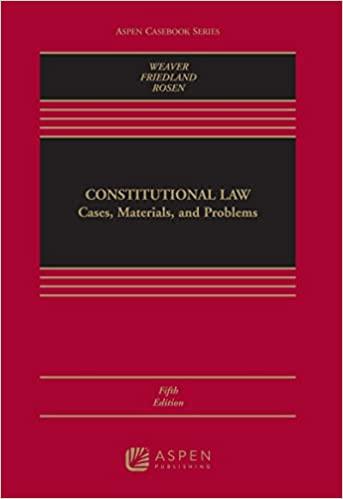Question
PLSSS HELP ME WITH THE FOLLLOWING QUETIONS MAAM/SIR Can you explain BRIEFLY the following questions? Thank you What is law in general and the divisions
PLSSS HELP ME WITH THE FOLLLOWING QUETIONS MAAM/SIR
Can you explain BRIEFLY the following questions? Thank you
- What is law in general and the divisions of law?
- What are the characteristics of Law?
- What are the sources of law and rules in interpretation of laws?
- What are the organization of courts in the Philippines?
- What are the classification of laws as to purpose and subject matter?
- What is meant by conclusive presumption of knowledge of law?
YOU MAY REFER HERE MAAM/SIR:
Law in general
-any rule of action or system of uniformity
General divisions of law
- With state intervention
- State Law
- Without state intervention
- Divine Law - derived from "Divine" providence
- Natural Law - based on the nature of a human and his sense of higher self
- Moral Law - founded on the principle of what is right or wrong
- Physical Law* - Laws of science
*differ as to subject
State law
- Rule of conduct, just and obligatory, laid down by a legitimate authority, for common observance and benefit
Characteristics of a law are already embedded in its definition.
Sources of Law in the Philippines
- Constitution - Fundamental Law of the land
- Legislation - passed by the Congress
- Administrative orders, regulations, and rulings - issued by administrative officials under legislative authority for the purpose of effective and efficient enforcement of the Law.
- Jurisprudence - Supreme Court decisions. Principle of Stare Decisis.
- Customs - only applies in the absence of applicable law
- Others - supplemental in nature. i.e. legal opinions, decision of foreign tribunals etc
Rules in the interpretation of Law
- If the Law is clear, there is no room for interpretation, only application.
- Our courts are not merely courts of law but also a court of justice. Thus. No judge shall decline in rendering a judgement in cas eof obscurity in laws.
Who interprets the Law?
The courts has the sole prerogative in interpreting a Law.
Organization of Courts in the Philippines
- Regular courts - consist of Regional Trial Court, Court of Appeals and Supreme courts having general jurisdictions. Includes municipal, metropolitan, and circuit courts.
- Special courts - Have jurisdiction over special cases such as Sandiganbanbayan for graft and corruption, Court of Tax appeals for tax cases.
- Quasi-judicial agencies - administrative bodies granted with court-like powers such as NLRC, SEC, IC, LTFRB etc. Commissions formed by the constitution are not included (CSC, COA, COMELEC)
Classification of Laws
- As to purpose
- Substantive - creates, defined, and regulates right and duties
- Adjective - procedures by which right may be enforced or violations redressed
- As to subject matter
- Public - relationship between the state and its people
- Private - relationship between and among individuals
Ignorantia legis non excusat
There is a conclusive presumption in law that ignorance of which excuses no one. In this sense, everyone should be constructively informed through publication (Art 3 of CC)
Step by Step Solution
There are 3 Steps involved in it
Step: 1

Get Instant Access to Expert-Tailored Solutions
See step-by-step solutions with expert insights and AI powered tools for academic success
Step: 2

Step: 3

Ace Your Homework with AI
Get the answers you need in no time with our AI-driven, step-by-step assistance
Get Started


